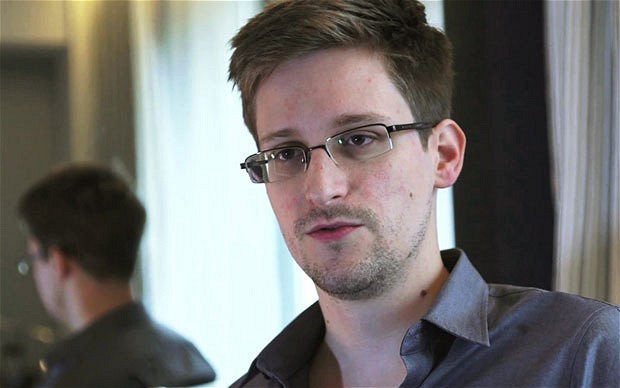Getting a mainstream audience to care about governments infringing on our intangible right to privacy via dragnet surveillance programs carried out without public disclosure (let alone permission), using complex technological tricks that allow this spying to go on effectively invisibly is no easy task. Hard enough to make the mainstream aware of what’s going on, let alone care.
In the U.K., for instance, the public has remained largely indifferent to the revelations about the extent of government spying on digital communications, including the U.K.’s own GCHQ, revealed by whistleblower Edward Snowden. (Yet contrast that to the response in Germany, where societal trust in public institutions is far less unconditional — given, of course, the relatively recent history of government transgressions against privacy and worse.)
Today, a flagship news and current affairs program broadcast on the U.K.’s BBC Radio 4 carried a broadcast by WikiLeaks’ Julian Assange this morning, using that mainstream platform to draw attention to government inroads into privacy. But it’s rather telling that this edition of the Today program was guest-edited by musician PJ Harvey, rather than the usual BBC bod.
“Knowledge has always flowed upwards, to bishops and kings, not down to serfs and slaves,” said Assange, giving his alternative Thought For The Day. “The principle remains the same in the present era. Documents disclosed by NSA whistleblower Edward Snowden show that governments dare to aspire through their intelligence agencies to a god-like knowledge of each and every one of us, but at the same time they hide their actions behind official secrecy.”
“As our governments and corporations know more and more about us, we know less and less about them,” he added. “The policy as always is to channel the decisive information upwards, never downwards. Today remember that it is good to seek to empower the powerless through knowledge, and to drag the machinations of the powerful into the daylight. We must be unapologetic about that most basic of humanities; the desire to know.”
Snowden also took to the airwaves over the holiday period to try to get the ‘privacy is critically endangered’ message across to a more mainstream audience in an Alternative Christmas Message broadcast on the U.K.’s Channel 4 TV station. The result was a broadcast that contained the queasy juxtaposition of festive best wishes with doomsday prophesying about a dystopic future of lidless authoritarian eyes.
Being the messenger of bad news has never been an easy role to play. Combine that with having to warn about something as abstract as the implications of an invisible loss of privacy — where the public is ceaselessly watched by overseeing eyes that only reveal themselves if invisible lines are crossed — and the difficulty of making this message stick is very evident.
“Hi and Merry Christmas,” said Snowden kicking off his 1min40 video warning, which was broadcast on Christmas day (as an alternative to the Queen’s annual Christmas message which unsurprisingly didn’t mention government threats to privacy but did talk up the importance of “quiet personal reflection” — which it would be nice to characterise as her Maj having her own little Snowden-inspired political dig).
“Recently we learned that our governments, working in concert, have created a system of worldwide mass surveillance, watching everything that we do,” continued Snowden. “Great Britain’s George Orwell warned us of the danger of this kind of information. The types of collection in the book — microphones and video cameras, TV that watch us are nothing compared to what we have available today. We have sensors in our pockets that track us everywhere that we go. Think about what this means for the privacy of the average person.
“A child born today will grow up with no conception of privacy at all. They’ll never know what it means to have a private moment, an unrecorded, unanalysed thought — and that’s a problem, because privacy matters; privacy is what allows us to determine who we are and who we want to be. The conversation occurring today will determine both the amount of trust we can place in the technology that surrounds us and the government that regulates it. Together we can find a better balance, end mass surveillance and remind the government that if it really wants to know how we feel asking is always cheaper than spying.”
Getting this stuff to seep into the mainstream ‘couldn’t care less’ consciousness remains the ongoing challenge for privacy advocates and campaigners like Snowden and Assange — especially as governments pull all the strings and levers at their disposal to discredit them. Hence their citation, in these two recent warnings, of well-known texts to hammer home their points (the Bible in Assange’s case; Orwell’s 1984 for Snowden).
But the more conversations they can start — and the more platforms they can speak from — the better. Shining a light in dark places requires a lot of energy — to keep the torches burning, and kindle a substantial impetus for change.
